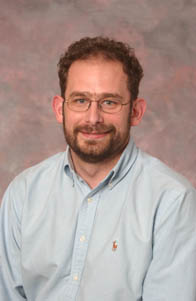Funding to refine clean-up technique
Lancaster University has been awarded funding for a PhD student to help develop better methods of cleaning up polluted soil.
The funding, worth around £60,000, has been awarded by the Natural Environment Research Council and will pay for a three-year Industrial CASE (Co-operative Awards in Sciences of the Environment) PhD studentship, supervised by Dr Kirk T. Semple and based in the Department of Environmental Science. This CASE Studentship scheme, which aims to promote partnerships between higher education institutions and industry.

The student will work with an Aberdeen-based industrial partner Remedios Ltd, an environmental consultancy, which specialises in using a method called ‘biopiling’ to clean up contaminated land. Biopile remediation is an environmental clean-up technology that uses naturally occurring microbes such as bacteria and fungi to destroy organic contaminants such as petrochemicals.
Contaminants such as petrol, grease, diesel fuels, and motor oil are difficult to remove safely from the environment but scientists have been developing ways of using microbiology to solve the problem. The student will help carry out further research into this technology in order to refine the process, making it quicker and more efficient.
Dr Semple said: “Contaminated land is a significant problem in the UK. Recent changes in the regulation and assessment of such land, together with the introduction of the Landfill Directive, means there is a great demand for sustainable approaches to its treatment. Biological treatment, or bioremediation, of contaminated land is becoming more popular, as this allows the recycling and reuse of land for development and wealth-generation.”
Dr Graeme Paton, Technical Director at Remedios, said: “This project will look at ways of improving our methods of cleaning up of contaminated land as well as considering strategies for accelerating the clean-up time.”
“The student will gain expertise in environmental chemistry, microbiology and soil science which will enable them to progress within environmental consultancy, regulation or research.”